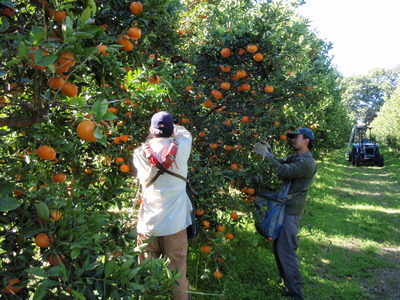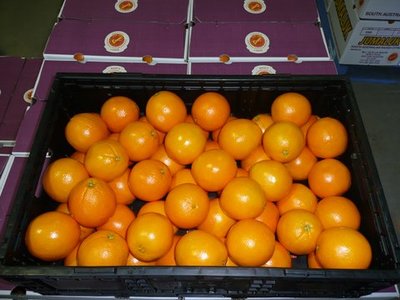Crate results for citrus growers
Wednesday, 20 February, 2013
Fruit growers invest blood, sweat and tears (sometimes literally) into their products, selecting the right variety, then protecting and nurturing trees for years before they yield a commercial crop. They are both a grower’s livelihood and passion, and the last thing the grower wants is to see fruit damaged or the quality compromised as it travels through the supply chain.

Growers are also a pragmatic bunch, so when citrus grower and market agent Chris Deveney from Favco says that his first choice for shipping oranges and mandarins through the supply chain is a CHEP crate, there has to be a practical reason why.
“The crates look after the product better,” Deveney says. “They travel better, get better airflow through the product which maintains the cool chain better and therefore the product quality is better.
“Also there’s no sag. If cardboard gets wet for any reason you get compression in the fruit. As cartons are put on trucks they tend to compress together. You don’t get that with crates. The crates transport beautifully through the supply chain and they don’t damage fruit.”

Favco is numbered among the growers that are going back to using CHEP crates for oranges after a brief sojourn into cardboard cartons. As soon as it was known that oranges would again be accepted in crates, Favco switched back.
“We never stopped using them for mandarins,” Deveney said.
Mandarins are less robust than oranges, and require a tightly controlled cool chain to maintain quality. However, even the robust navel copped a beating in cardboard compared to crates, with damage rates increasing by 50% on large fruit.
“We were one of the first farms using crates when they were introduced in 2000, particularly for mandarins,” Deveney said.
“They improved our overall performance, with interstate arrivals turning up and we’ve been a fan of them ever since.”
Favco has farms in Mundubbera and Mareeba in North Queensland and also sources citrus from no less than 150 growers across Australia including citrus from the Riverina, Riverland and Mildura regions.
In addition to crates, Favco also uses CHEP bins for picking and CHEP pallets when transporting loads.
Unlocking AI: strategic moves to revolutionise the food sector
As the AI transformation gathers pace, we can expect AI tools to become established in the food...
The development of food GMPs
Good manufacturing practices (GMPs) in the food industry are in place to ensure that the products...
Improving traceability with a warehouse management system
When it comes to supply chain management, advanced technologies are playing a role in optimising...














